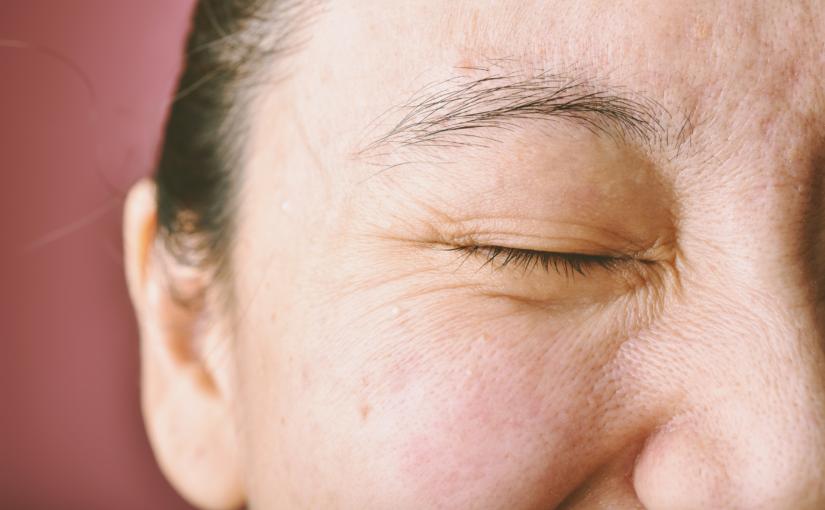Dehydration is one of the most common conditions I see in my clinic. I would say 95% of new clients that come in to see me display varying degrees of dehydrated skin.
This condition can sometimes be confused with dry skin, but it is very different. Dry skin, I normally refer to as Lipid Dry skin, is a skin ‘type’ rather than a condition. So you would have been born with dry skin and it is usually genetic. A lipid dry skin is a skin lacking in the right levels of lipids and secretions (sebum). Dehydrated skin is a skin lacking in moisture. You can be both lipid dry and dehydrated or in fact any skin type, for example, oily skin can be dehydrated. Dehydration is a condition, which, the good news is it can be resolved
How does a dehydrated skin look?
The appearance of dehydrated skin is normally a dull, lacklustre complexion that can feel rough to touch. It is also common to get a tight feeling once you have cleansed like you need to apply your moisturiser to relieve it. So dehydrated skins can have an issue with closed comedones, small spots that lie under the skin. This can be due to the fact that the skins natural desquamation (shedding) process has become sluggish due to the low levels of moisture. The chemical reaction that happens within the skin to allow those top layers of skin cells to shed and become house dust needs moisture to happen.
The most common reason our skin can get dehydrated is due to a compromised barrier function. When our barrier is compromised it is incapable of doing one of its main functions; keeping the moisture within our skin. This moisture loss is referred to as trans epidermal water loss (TEWL) and even though we need a certain amount of TEWL to keep the cycle of the skin producing moisture going when we lose too much the skin can’t keep up in making enough to replace what is lost.
Reasons we may get a compromised barrier function
- Harsh/unsuitable cleanser
- Over exfoliation
- Environment e.g. central heating
- Inflammation
- Medication/illness
- Menopause
- Using occlusive products
It is important to correct dehydration as left to prolong can go on to cause further issues, such as sensitive, reactive skin, further inflammation, congestion and even premature ageing. In my next blog, I am going to discuss how we can treat dehydration, but in the meantime, if you are reading this and it sounds familiar you may be suffering from dehydrated skin, a consultation with myself would confirm this. My online consultations are free of charge whilst on lockdown so click here to book yours today!

